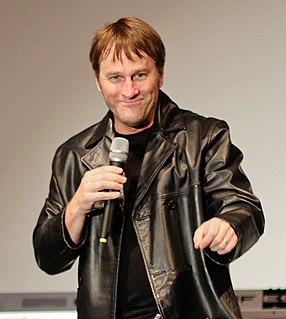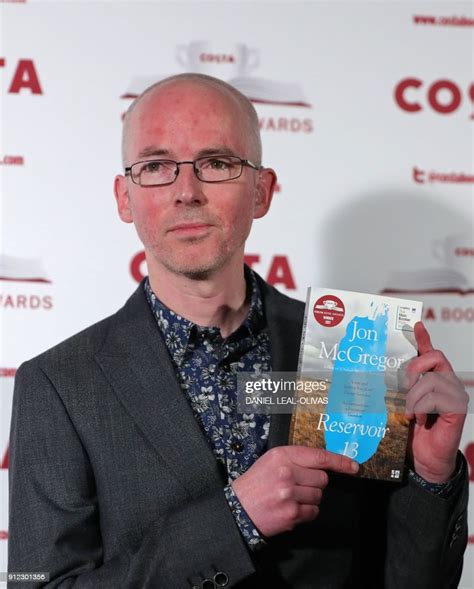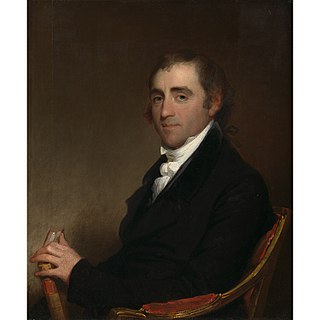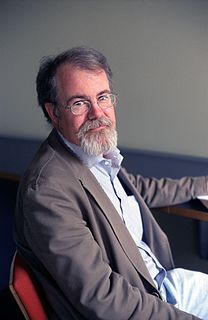Top 206 Textbooks Quotes & Sayings - Page 4
Explore popular Textbooks quotes.
Last updated on April 23, 2025.
Your medical documents will say Acquired Immune Deficiency Syndrome that is AIDS. What that means you have got this challenge of immune deficiency. Alright what causes immune deficiency? HIV. Alright. Is that all that causes immune deficiency? The medical textbooks will say there are other things that cause immune deficiency. There is also genetic immune deficiency that is a different phenomenon.
It's a shame for women's history to be all about men--first boys, then other boys, then men men men. It reminds me of the way our school history textbooks were all about wars and elections, one war after another, with the dull periods of peace skimmed over whenever they occurred. (Our teachers deplored this and added extra units about social history and protest movements, but that was still the message of the books.)
When I went to Afghanistan in 2003, I walked into a war zone. Entire neighborhoods had been demolished. There were an overwhelming number of widows and orphans and people who had been physically and emotionally damaged; every 10-year-old kid on the street knew how to dismantle a Kalashnikov in under a minute. I would flip through math textbooks intended for third grade, fourth grade, and they would include word problems such as, "If you have 100 grenades and 20 mujahideen, how many grenades per mujahideen do you get?" War has infiltrated every facet of life.
Maybe, generations ago, young people rebelled out of some clear motive, but now, we know we're rebelling. Between teen movies and sex-ed textbooks we're so ready for our rebellious phase we can't help but feel it's safe, contained. It will turn out all right, despite the risk, snug in the shell of rebellion narrative. Rebellion narrative, does that make sense? It was appropriate to do, so we did it.
By the time I got to school, I had already read a couple hundred books. I knew in the first grade that they were lying to me because I had already been exposed to other points of view. School is basically about one point of view -- the one the teacher has or the textbooks have. They don't like the idea of having different points of view, so it was a battle. Of course I would pipe up with my five-year-old voice.
When we send our children to school, they learn nothing about us other than we used to be cotton pickers. Why, your grandfather was Nat Turner; your grandfather was Toussaint L'Ouverture; your grandfather was Hannibal. It was your grandfather's hands who forged civilization and it was your grandmother's hands who rocked the cradle of civilization. But the textbooks tell our children nothing.
There is a lot of money to be made from miseducation, from the easy to read easy to learn textbooks, workbooks, teacher manuals, educational games and visual aids. The textbook business is more than a billion-dollar-a-year industry and some of its biggest profits come from 'audio-visual aids' - flash cards, tape cassettes, and filmstrips. No wonder the education industry encourages schools to focus on surface education.
So long as our textbooks hide from us the roles that people of color have played in exploration, from at least 6000 BC to the twentieth century, they encourage us to look to Europe and its extensions as the seat of all knowledge and intelligence. So long as they say “discover,” they imply that whites are the only people who really matter. So long as they simply celebrate Columbus, rather than teach both sides of his exploit, they encourage us to identify with white Western exploitation rather than study it.
There is no thing as a man who does not create mathematics and yet is a fine mathematics teacher. Textbooks, course material-these do not approach in importance the communication of what mathematics is really about, of where it is going, and of where it currently stands with respect to the specific branch of it being taught. What really matters is the communication of the spirit of mathematics. It is a spirit that is active rather than contemplative-a spirit of disciplined search for adventures of the intellect. Only as adventurer can really tell of adventures.
Our teaching of mathematics revolves around a fundamental conflict. Rightly or wrongly, students are required to master a series of mathematical concepts and techniques, and anything that might divert them from doing so is deemed unnecessary. Putting mathematics into its cultural context, explaining what is has done for humanity, telling the story of its historical development, or pointing out the wealth of unsolved problems or even the existence of topics that do not make it into school textbooks leaves less time to prepare for the exam. So most of these things aren't discussed.
For most problems found in mathematics textbooks, mathematical reasoning is quite useful. But how often do people find textbook problems in real life? At work or in daily life, factors other than strict reasoning are often more important. Sometimes intuition and instinct provide better guides; sometimes computer simulations are more convenient or more reliable; sometimes rules of thumb or back-of-the-envelope estimates are all that is needed.
Scientific truth is not what any one scientist puts forth. It can be that, but it is generally not. It is the sum of multiple studies that all lean in the same direction in their results conducted by different people at different times of different nationalities with different competitive urges who all end up getting the same result. Then you have an emerging scientific truth, and then you put that in the textbooks, and that will never be shown to be wrong later on.
What we did in the 1960s and early 1970s was raise the consciousness of white America that this government has a responsibility to Indian people. That there are treaties; that textbooks in every school in America have a responsibility to tell the truth. An awareness reached across America that if Native American people had to resort to arms at Wounded Knee, there must really be something wrong. And Americans realized that native people are still here, that they have a moral standing, a legal standing. From that, our own people began to sense the pride.
Taking ideas seriously does not fit with the rhetorical style of textbooks, which presents events so as to make them seem foreordained along a line of constant progress. Including ideas would make history contingent: things could go either way, and have on occasion. The 'right' people, armed with the 'right' ideas, have not always won. When they didn't, the authors would be in the embarrassing position of having to disapprove of an outcome in the past. Including ideas would introduce uncertainty. This is not textbook style.
He thinks about her, at this moment, in her house, a few thin walls away, packing her life into boxes and bags and he wonders what memories she is rediscovering, what thoughts are catching in her mouth like the dust blown from unused textbooks. He wonders if she has buried any traces of herself under her floorboards. He wonders what those traces would be if she had. And he wonders again why he thinks about her so much when he knows so little to think about.
We have a dangerous trend beginning to take place in our education. We're starting to put more and more textbooks into our schools. We've become accustomed of late of putting little books into the hands of children, containing fables and moral lessons. We're spending less time in the classroom on the Bible, which should be the principal text in our schools. The Bible states these great moral lessons better than any other man-made book.
Peter Montiel has long set the highest standard for lucid textbooks on the macroeconomics of developing countries. Now in this new edition of his superb classic Macroeconomics in Emerging Markets, he has surpassed even himself. He uniquely fills the gap between rich-country-obsessed macro- and micro-obsessed developing-country analysis. No student of the macroeconomics of development will henceforward be able to do without this book.
Seeing and playing with physical objects can enable access to symbolic ideas. When I studied physics and math at university it was all done through equations and textbooks whereas artists go to art school and start making stuff; they fling paint at the walls, they dance and bash things together with giant bits of metal. Our society has come to think of science as being a very abstractified thing, and art as being a materialized thing.
I found marketing to be highly descriptive and prescriptive, without much of a foundation in deep research. I brought in economics, organization theory, mathematics, and social psychology in my first edition of Marketing Management in 1967. Today Marketing Management is in its 15th edition and remains the world's leading textbook on marketing in MBA programs. Subsequently, I wrote two more textbooks, Principles of Marketing and Marketing: an Introduction.
I think it's important to humanize history; fiction can help us remember. A lot of books I've read in the past have been so much more important than textbooks - there is an emotional connection with one particular person. I'm very much of a research-is-important type of fiction writer, even for contemporary fiction. I wrote about blogs in America and I've never blogged. But I read many, many blogs - usually about feminist things, or about race, or about hair.
Today if you look at most economic textbooks, economics is not defined by subject matter. It's presented as a science of social choice that applies not only to material goods - not only to flat-screen televisions - but to every decision we make, whether it's to get married, or to stay married, whether to have children and how to educate those children, or how to look after our health.
Howard Zinn ran what is called the Zinn Education Project. It is a radical, radical bunch of insane lunatic leftists. And there is a project at the Zinn Educational Project: A People's History of Muslims in the United States - What School Textbooks and the Media Miss. And this program is teaching your high school student, juror junior high or middle school student.
At first, I felt bad judging an entire state by one county political official, but then I found out Morrison had also helped screen public school textbooks, a topic which is another chapter in my book. The Alamo is managed by the Daughters of the Republic of Texas, a group whose members can claim a relative who was living in Texas during the revolution. The fight over mismanagement of the Alamo has been going on for years.
As an activist, you do find yourself directed more toward public action. But I've always tried to use stories from my own life in my writing for instance. It has always been clear to me that the stories of each other's lives are our best textbooks. Every social justice movement that I know of has come out of people sitting in small groups, telling their life stories, and discovering that other people have shared similar experiences. So, if we've shared many experiences, then it probably has something to do with power or politics, and if we unify and act together, then we can make a change.
I realized a school doesn't need a School Committee or Trustees or Governors or lumber or approved textbooks. All a school needs is a mind that sends and minds that receive. I shall teach my own students how to teach themselves. My own school. No buildings. Break out of the classroom prison. All I need is SKY. The Universe can be my classroom - the great vast world of the Concord countryside.
























